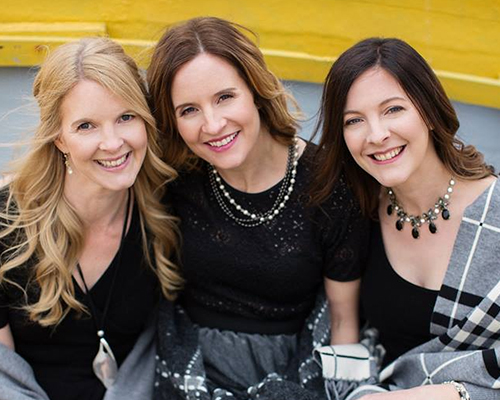Teresa, Karen and Maureen
Our father, John, was diagnosed with Lewy body dementia 3 years ago. He was 75 years old at the time.
Even though our dad was exhibiting strange behaviours several years before he was actually diagnosed, it was still an incredible shock when we found out he had the disease. He was having a few memory issues at the time, but one day he woke up from a nap and didn’t recognize our mother, the woman he was married to for 40 years. From there, he would go in and out of an alternate state of reality, one in which he was always trying to protect himself from imminent danger.
We told our dad’s sister and family right away. They were devastated by the news but offered invaluable support and comfort. Apart from them and a handful of close friends, we kept the news confined within the family out of respect for our father, who requested that we didn’t tell anyone about what was going on.
From a healthcare standpoint, our dad’s family doctor wasn’t very empathetic to our dad in the initial stages of his diagnosis. He was very matter of fact and didn’t offer much in the way of help or support. Because of how quickly this stage of his dementia kicked in, he went from being very self-sufficient to being quite dependent overnight.
It took several months for him to finally see a specialist (which was incredibly hard on the family). But, this specialist was kind and compassionate to our dad. He didn’t, however, communicate much with our father and instead directed most of his questions and comments to the family.
Stigma is a big problem for people facing life with dementia. As people found out about our father’s diagnosis, we found that they would treat our dad differently. Some people would be too uncomfortable to talk to him or to engage in any kind of conversation with him. People would also be reluctant to visit or invite him to functions because they were uncomfortable with how he might react. He often felt isolated.
We live in a time where more and more people are getting diagnosed with dementia – and it’s not only the elderly. People are being diagnosed in their 40s, 50s and 60s. There is definitely more awareness around the disease, but there needs to be more understanding and education.
Once someone has been diagnosed with dementia, a lot of people still have the attitude that that person is now a write-off and is unable to contribute in any way to society. They are treated differently and excluded and isolated in so many ways. Our dad was so concerned with people finding about his disease for this very reason. Unfortunately, he was treated differently and marginalized by many people because of his diagnosis. This attitude needs to change.

HERE ARE OUR TIPS TO HELP YOU UNDERSTAND:
- They will have good days and bad. If they’re repeating a question, answer like it’s the first time they’ve asked. If they think you are their cousin Bob, play along. You have to live in their reality, whatever that might be. Pointing out their faults and short comings only makes them feel more threatened and vulnerable.
- You have to adapt to each stage of the disease. You have to let go of the person they were and concentrate on the person they are now. You have to provide them with the necessary care and attention they need in order to make them feel safe and understood. You have to adapt your responses to their behaviours as the disease progresses. You can’t feel hurt or upset if they don’t recognize who you are or if they are unable to do the same things they once could. Patience is a must!
- Try to keep their environment as familiar and as safe as possible. In their chaotic brain, they are constantly looking for familiarity and trying to make sense of the world around them. Stick to routines they are comfortable with and try not to put them in situations they may find overwhelming.
- Find activities that bring them comfort. We found playing music with our dad or singing for him always seemed to bring him comfort and joy. When we’d notice he was feeling scared or agitated, we used music as a tool to help settle him down.
- Find manageable tasks for them to do. They need to feel needed and wanted. We would often get our dad to dry the dishes, rake the leaves or fold the laundry. Performing these simple tasks would make our dad feel useful and needed. Avoid the urge to do everything for them. Even though it may take them longer to do, it is necessary to keep their brains active and stimulated.
- Speak to them and engage them in conversations. They still have a lot to say and a lot to teach us. We spent hours asking our dad questions about his childhood and his past. We discovered so much we didn’t know. Even when we didn’t quite understand what he was saying, we would still make the effort to communicate and make him feel he was being heard and understood.
- Most importantly, always treat a person with dementia with kindness and respect. They are relying on the people around them to help make sense of their reality and to help keep them safe. Treat them the same way you would want to be treated.
-
More Stories
-

Catharine Ann
2018
Newfoundland and Labrador
-

Peter
2018
Newfoundland and Labrador
-

Roseanne
2019
Newfoundland and Labrador
-

Sara
2018
Newfoundland and Labrador

Comments
We may use your information in order to track your relationship with us and our site(s). We do NOT share your information with third parties.